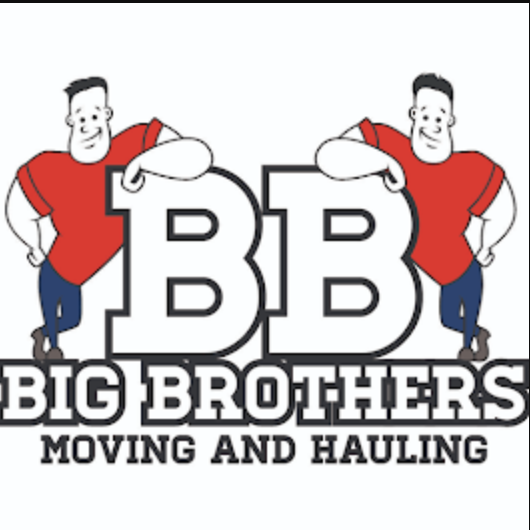Every move in New Jersey has its own pace—some rushed, others well-timed, and a few that unfold effortlessly. What separates these experiences often comes down to preparation and teamwork. With a well-organized plan, even the biggest relocation can feel easier to manage. In this guide, Big Brothers Moving & Hauling shares their structured approach to making a New Jersey move smoother, from early planning to finally feeling settled in a new home.
Preparing for the Move
The first and most important step in any successful move is creating a thorough moving checklist. This isn’t just a few quick reminders—it’s about mapping out every stage, from updating utilities and scheduling movers to cleaning the old home once everything is packed.
Breaking the move into smaller, actionable steps makes the process less overwhelming and easier to follow. Each completed task provides a sense of progress and helps maintain control throughout the transition.
Once the plan is in place, the next essential step is decluttering. This process might seem straightforward, but it can be emotional. It requires deciding what items truly matter and which ones are simply taking up space. Beyond saving time, decluttering reduces moving costs and physical strain.
It helps to sort items into three main categories: keep, donate, and discard. Keep what’s useful or meaningful, donate items in good condition, and responsibly dispose of anything broken or unusable. This not only lightens the load but also gives others a chance to benefit from what’s no longer needed.
After decluttering, the focus shifts to updating addresses and notifying relevant parties about the move. This includes banks, insurance providers, schools, medical offices, subscription services, and postal offices.
Delays in notifications can lead to missed mail, payment issues, or scheduling mix-ups, so it’s best to create a communication checklist to ensure nothing is overlooked. Setting deadlines for these updates before moving day helps everything flow more smoothly.
By establishing a clear plan, decluttering with purpose, and keeping communications organized, movers create a strong foundation for a less stressful experience. Once these are in order, the next phase centers on efficient packing and unpacking.
Efficient Packing and Unpacking
Packing tends to be one of the most stressful parts of moving. According to a 2023 industry report, more than half of movers find this stage the hardest. The main reason often lies in disorganization and the fear of losing or damaging items. Developing effective packing strategies can eliminate much of this anxiety.
Packing Strategies
The key to efficient packing is organization. Instead of randomly filling boxes, labeling each one clearly with both contents and destination room is crucial. For example, writing “Fragile – Glassware – Kitchen” instead of just “Kitchen” makes a significant difference when unpacking later.
Color-coded labels or stickers can make the process even smoother. Assigning a different color to each room allows movers and helpers to identify where boxes belong without confusion.
The right packing supplies are just as important. Sturdy boxes, bubble wrap, dish packs, and wardrobe boxes protect items from breakage. It may be tempting to reuse old materials to save money, but weak boxes or worn-out supplies often lead to damage and added costs. Quality packing materials pay off in reliability and peace of mind.
Unpacking Tips
Once the move is complete, unpacking brings its own challenges. Prioritizing essentials first is a smart move. Creating an “open-first” box with toiletries, basic kitchenware, clothes, and key documents ensures that the first night in the new home is comfortable and organized.
When it’s time to unpack fully, handling one room at a time keeps the process structured. Beginning with essential areas like the kitchen and bedrooms provides quick comfort and functionality. Setting up beds and kitchen basics early allows for better rest and homemade meals rather than takeout.
Thoughtful packing and unpacking are about creating order, not rushing. The more organized the approach, the less stressful the move feels overall. With belongings secured and a clear process in place, the next challenge is managing the coordination and logistics that make moving day run smoothly.
Coordination and Logistics
A successful move relies on precise coordination and attention to detail. Logistics go far beyond loading boxes; they involve careful scheduling and timing so that every part of the process fits together without unnecessary delays.
Booking professional movers early—preferably a month in advance—is essential. Choosing a company that understands New Jersey’s traffic patterns, local regulations, and building requirements helps prevent complications later. Checking reviews, comparing estimates, and verifying licenses ensures both quality and legitimacy.
After confirming movers, keeping a detailed inventory list becomes the next priority. This document serves as a record of all belongings, including their condition and where they are packed. In case of damage or loss, an accurate inventory can be invaluable when filing insurance claims.
Coordinating family travel with moving schedules is also important. Whether by car or flight, timing everyone’s arrival with the movers prevents confusion and waiting around on moving day. A shared digital calendar helps synchronize tasks, alerts, and deadlines so everyone stays on the same page.
Key Coordination Steps | Purpose |
|---|---|
Confirm movers’ arrival times | Ensures readiness and smooth workflow |
Align family travel with the schedule | Avoids delays or missed connections |
Communicate updates promptly | Reduces last-minute confusion |
Paying close attention to logistics allows the entire moving operation to unfold with minimal disruption. Once these elements are set, the focus can turn toward maintaining the comfort and emotional balance of everyone involved.
Managing Family and Pets
Moving can be particularly challenging for children and pets, who often struggle with changes to their environment. Taking time to address their needs can make the transition more positive for the whole household.
For children, involvement makes a big difference. Allowing them to pack their own small box of favorite toys, books, or keepsakes gives them a sense of ownership and comfort. Including them in simple moving decisions helps reduce anxiety about leaving familiar spaces behind.
Pets, too, require thoughtful attention. Preparing a moving day kit with food, water, toys, and bedding helps keep them calm and comfortable. Familiar scents and routines are especially important during transitions. Using carriers for small pets or crates for travel keeps them safe, while sticking to regular feeding and walking schedules maintains stability.
Once in the new home, setting up sleeping areas for both children and pets right away fosters a sense of normalcy. Having beds and favorite items ready ensures that everyone can settle in quickly and rest after a long day.
Considering emotional needs along with logistics makes the entire move more manageable and helps create a supportive atmosphere as the household adjusts to its new environment.
With everyone cared for and basic routines reestablished, the next step is transforming the new house into a space that feels like home.
Settling into Your New Home
The first few days in a new home can feel disorganized, but a clear plan helps make the adjustment smoother. Start by setting up the most functional areas first—the kitchen and bedrooms. Having meals and sleep spaces ready reduces daily stress and restores normal routines quickly.
Unpack essential items first, such as pots, utensils, toiletries, and bedding. Nonessential décor and extras can wait until the essentials are complete. Handling one room at a time keeps things focused and prevents burnout.
Beyond the physical setup, exploring the new neighborhood is key to feeling at home. Identify nearby grocery stores, pharmacies, schools, hospitals, and transportation options early on. This not only provides practical convenience but also gives a sense of familiarity and control.
Connecting with neighbors and engaging in local events or community activities helps strengthen that sense of belonging. Simple interactions, such as greeting neighbors, joining local groups, or attending nearby gatherings, build relationships that make the area feel friendlier and more supportive.
Settling into a new place takes time, but these steps make it easier to adapt both practically and emotionally. Once comfortable with the surroundings, attention can shift toward maintaining financial stability throughout the process.
Budget Planning and Management
Moving can become expensive quickly if costs aren’t monitored closely. A well-organized budget helps prevent overspending and reduces stress.
Start by listing all anticipated expenses—movers, packing materials, travel costs, meals, and utility transfers. Each category should have an assigned budget limit. This provides a clear spending framework and highlights where savings can be made if necessary.
Expense Type | Estimated Cost |
|---|---|
Movers | $1,000–$3,000 |
Packing Supplies | $100–$300 |
Travel Costs | $200–$500 |
Utility Transfers | $100–$200 |
Miscellaneous | $100–$300 |
Using budgeting tools or mobile apps can simplify expense tracking. Recording each payment in real time ensures that costs stay aligned with expectations. If one category begins to exceed its limit, immediate adjustments can be made—such as borrowing boxes or reusing supplies—to avoid financial strain later.
Consistency in tracking is critical. Monitoring daily spending, even on small purchases, helps maintain control over the entire moving budget. Having a small emergency fund for unexpected expenses is also wise, offering flexibility without derailing the plan.
A structured budget not only supports financial stability but also creates peace of mind, allowing movers to focus on the relocation itself rather than worrying about expenses spiraling out of control.
A well-executed move in New Jersey depends on thoughtful preparation, smart organization, and consistent communication. From creating checklists and decluttering to managing logistics, caring for family, and sticking to a budget, each step contributes to a smoother, more efficient relocation. When planned carefully, moving becomes less about stress and more about progress—turning what could be a hectic experience into a confident transition toward a new beginning.
Why Choose Big Brothers Moving & Hauling for Your New Jersey Move?
Big Brothers Moving & Hauling has earned the trust of New Jersey residents through reliable service, attention to detail, and genuine care for their customers. Their team approaches each move with precision, making sure every item—from furniture to fragile belongings—is handled safely and efficiently. Whether it’s a residential, commercial, or long-distance relocation, they provide flexible solutions that make the entire process easier for their clients.
Their commitment to professionalism and customer satisfaction sets them apart from other moving companies in the area. With experienced movers who value punctuality and respect your time, Big Brothers Moving & Hauling ensures that every step of your relocation is smooth and worry-free. Contact them at 973-834-8423 to schedule your move today and discover how moving can be simple, organized, and stress-free with the right team by your side.






